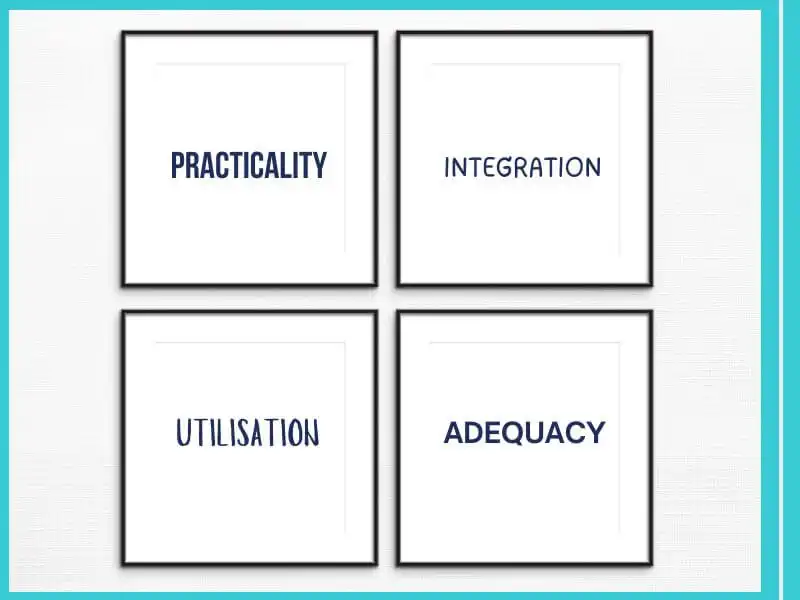
- 19.11.2024.
- News, Management
Business digitalisation, aligning technology, processes, and people, often sounds like something that can be achieved overnight, but the reality is far more complex. Most businesses need digital development—a gradual, flexible, and human-driven adaptation process. In her latest article, Andreja Fazlić discusses everything about digital transformation and whether your business is truly ready for it.
Digital transformation—it sounds grandiose, doesn’t it?
Like a magic wand that solves all business challenges. It doesn’t even need to be fully spoken before it evokes ideas of dramatic change, replacing the old with the new, and a bright, technology-driven future.
But here’s an unpopular opinion: most companies are not truly “ready” for transformation; what they need is digital development.
Transformation creates unrealistic expectations and overlooks the real dynamics of activities and relationships that underpin successful business digitalisation.
Development, in contrast, more accurately reflects what happens in practice—a gradual, flexible, and human-led adaptation of business to the digital age and its tools. This is particularly true for marketing, sales, and customer support.
Digital transformation vs. digital development
Transformation is often presented as a dramatic, one-time event. It involves radical change—replacing old systems and processes with new ones. It sounds revolutionary, but how many companies can realistically undergo such a process without affecting their culture and daily operations?
Transformation creates pressure and the sense of urgency to leap into the unknown, which becomes fertile ground for stress, resistance, and insecurity within teams. It’s often seen as a project with a defined start and end, overlooking the fact that real change requires continuous effort.
And that effort comes from people!
Most of these projects place too much focus on technology and fail to account for the most critical factor in digital transformation—the people who must live and work within the new business frameworks.
In contrast, development is a long-term and iterative process. Its goal is not drastic change but the adaptation and continuous improvement of existing systems. It better acknowledges the realities of business processes and human nature.
Digital business development doesn’t demand revolution – it supports evolution, built on three key principles:
- Graduality - development involves small but significant changes that accumulate over time.
- Adaptability - it is flexible and allows quick responses to changing market conditions and technology.
- People at the centre - development prioritises people (both customers and employees) and their needs.
Unlike transformation, development does not create the illusion of a magic wand but instead provides tools to support people in their everyday work rather than burdening them.

People – the core of digital development
Regardless of whether you call your initiative development or transformation, remember: the real challenge isn’t technology; it’s people.
According to McKinsey, only 30% of transformational projects achieve their goals, with the main reason for failure being resistance within the organization. People dislike change, which is no surprise—change requires stepping out of comfort zones, often provoking fear and uncertainty.
A CRM system won’t boost sales overnight. AI won’t automatically personalise customer support. Why? Because all technologies require something that cannot be bought – adoption, adaptation, and active employee participation. True change – whether through development or transformation – lies in how people understand and use the technology. Otherwise, it remains nothing more than an expensive, underutilised resource.

Framework for successful digital development – system and structure
Timothy T. Tiryaki, PhD, author of Leading with Culture, emphasises that operational culture, one of the three key dimensions of culture (along with vision as the “North Star” and employee experience), represents how we collaborate and achieve goals within an organization. According to his research, systems form the foundation of high-performance operational culture. They are essential for creating an environment that fosters efficiency and resilience.
Why are systems important?
Practicality
- A well-designed system should be functional and easy to use. The more practical it is, the easier it is for teams to integrate it into their daily processes.
Integration
- Different systems should be interconnected and integrated across the organisation to enable seamless collaboration and alignment.
Utilisation
- A system’s value comes from regular and proper use. Active implementation empowers teams by providing reliable tools to achieve goals and contribute to broader strategic visions.
Adequacy
- A system that doesn’t meet organisational needs becomes a burden. Adequate systems not only address current business requirements but are designed to adapt to future challenges, remaining relevant and effective over time.
Systems are not just technical infrastructure – they are the core of operational culture. Proper implementation, utilisation, and adaptation of systems enable companies to be more resilient, flexible, and efficient.
A system is “organisational culture in action”.

What does the revenue flywheel have to do with it?
In the context of operational culture, the term “system” often refers to structured processes and tools that enable organisational efficiency. One such system, regularly discussed in this column, is the Revenue Flywheel, whose key elements include processes, strategies, tactics, campaigns, technology, and resources.
If you want your digital development or transformation to succeed—or simply align with this business model—start with resources and processes.
- Resources: Who does what? Clearly defined roles within the organisation are essential for embracing change. Everyone involved should understand their role, contribution, and how new technologies impact their daily tasks.
- Processes: What, how, and why? Successful processes are simple, scalable, and aligned with business goals. They provide a framework for implementing technology in a way that facilitates daily work rather than complicating it.
When the system is well-structured, people within the organisation have a framework that enables easier transitions and adoption of change.
Does digital development sound better to you now?
Digital transformation is a sexy term—it sounds fast, powerful, and inevitable. But in reality, transformation is a rare occurrence.
People are the key. Without their readiness, mindset shifts, and clear guidance throughout the process, no project will achieve its goals.
Want to succeed in digital development? Start by understanding the needs of your people (employees and customers), building clear structures, and establishing processes that support your business growth.
Perhaps it’s time to stop chasing transformation and focus on the digital development of your business.
Categories of trends
- News
- Sale
- Marketing
- SEO
- Web design
- Social media
- Technology
- Regulations
- Management
- Education
- Finances
- User experience
Newsletter
Sign up for the newsletter and receive the latest trends and tips straight to your inbox




